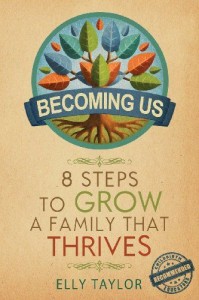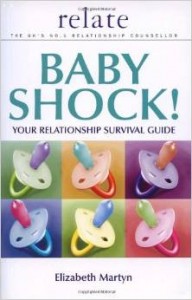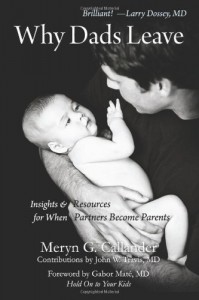Becoming Us: 8 Steps To Grow A Family That Thrives
Becoming Us is Kindred’s Book of the Month Selection for June 2014
Kindred is proud to partner with Australian author and relationship counselor, Elly Taylor, to bring her stunningly insightful and wise book, Becoming Us, to international audiences. To see our video interview with Elly when she visits the United States in June 2014, sign up to Kindred’s e-newsletter by texting KINDRED to 22828. Becoming Us is a Kindred Book of the Month for June 2014 because of its courageous contribution to “Sharing the New Story of Childhood, Parenthood and the Human Family.”
To find or start your own local, Kindred Book Club, email us at info@KindredCommunity.
Introducing Kindred’s Becoming Us Video Series
Listen to Elly share her story and her inspiration for researching and writing Becoming Us in the video below. As Elly shares, there is a gap between the resources and support that exist for “pregnancy” and “parenting” as those resources don’t acknowledge “parenthood” and the many ways we change in relation to ourselves and others. To receive notices of the entire Becoming Us series, SUBSCRIBE to Kindred’s E-Newsletter. To read more about the video series go here. See photos of the video series shoot from Elly’s USA tour here.
Introduction to Becoming Us
My Story

I remember quite clearly the moment the seed for this book was planted. We had just arrived home from the hospital, brand-new parents with our gorgeous, precious newborn. My experience of the journey so far had been positive, I’d had a mostly trouble free pregnancy, we’d found a great childbirth educator, a midwife I fell in love with and who managed to choreograph a birth that was wondrous. Noreen showed my husband how to stand behind me with his hands on my hips and do “birth circles” in early labor; it felt like we were dancing. She instructed him how to do acupressure when the pain became intense and I felt grateful for his touch and comfort. She suggested to him that he stand behind me so I could lean into his arms and I gave birth, literally and figuratively, supported by him; he had my back.
These memories stay with me still, another two babies and many years later, and I am grateful to my midwife for gifting them to us. But I also remember a few days afterwards, as I stood in the hallway with the weight of our son in my arms, sensing I was experiencing something entirely new and unfamiliar, my first mother-feelings: I felt more complete and stronger in some ways and yet more tentative and vulnerable in others. I didn’t have the words to describe what was unfolding inside me and this became part of our problem. So immersed was I in my new-mother self and so overwhelmed with my new-mother responsibilities, I didn’t even stop to think what, if anything, was happening inside my partner. This became a problem too.
I began my career as a relationship counselor when we had a two year old and I was six months pregnant with our second child. This proved to be both a blessing and a curse.
One of the key questions I was trained to ask a couple in their initial counseling session is: “when did things start to change between you?” Inevitably they would say it was after they began a family. I was taken aback. I checked this out with more experienced colleagues and received another surprise: it seemed general knowledge. ‘’Oh yeah’’, they said casually, “it’s the dynamics”. I was not pleased to discover that “dynamics” applied to this particular point in my own life, because I knew what that meant: when the dynamics in a relationship—any relationship—change, it’s like the foundations of a building starting to move—everything else can start to shift too.
The biggest shock of all was why, if this was common knowledge in the therapy community and so important for parents to know, it hadn’t filtered through to the birth world? Why hadn’t somebody told them, so they could tell us?
So my husband and I found ourselves grappling with issues we had been completely unprepared for: I felt like I was losing sight of myself, I didn’t know who I was anymore; we had intense conflicts we didn’t anticipate or understand why we were having them; experienced strong emotions we didn’t expect to feel and complicated issues the classes, books and training didn’t cover. I remember thinking back then somebody should write a book about all this stuff.
And then I realized that it’s not any one person’s role in our world today to pass on the wisdom of parenthood: it’s not our childbirth educator’s, our midwives, our OB/GYN’s, our physician’s or our family’s or friends’. It’s nobody’s responsibility. So we turn to books, and although I found many great books on pregnancy and birth and just as many on the tasks and responsibilities of parenting, I couldn’t find a single one that addressed what I wanted to know about parenthood.
As a partner, I was acutely aware of the stretch marks that were spreading across our relationship. As a mother, I was increasingly aware of how I wanted to be. And as a counselor, my understanding of the gap between these two states—and how to bridge them—was growing too. I wanted answers. What happens to us and our partnership when we become a family? What makes or breaks us? What can be done to really prepare us for parenthood?

I started researching and was shocked to find decades of it. As far back as the 1950’s, psychologists were discovering the effects of having a baby on a relationship, even good old Dr. Spock referred to it. A number of major long-term studies had been done in the U.S. during the 1970’s and 80’s, which clearly showed a first child mixed things up. The results were published in a handful of books written for professionals. Elizabeth Martin, a UK expert, even came up with a term for the phenomenon: babyshock!
Well, I was certainly shocked by what I found! Cowan and Cowan (1992) found that 92% of couples reported increased disagreement and conflict in their baby’s first year. Gottman and Gottman (2007) found 67% of couples experienced a decline in satisfaction with their relationship. I wondered what the other 33% were doing differently.
What saddened me were the more extreme statistics. Wendy Le Blanc (1999) reported in her book NAKED MOTHERHOOD that 17% of Australian couples said having a baby together caused the end of their relationship; in the book, WHY DADS LEAVE, Callander (2012) reveals 30% of fathers in the U.S. leave their families in the first three years of their baby’s life. I wondered how parents got to this point and what on earth we could do about it.
I was looking for answers, but I found much more than I bargained for. I discovered this: becoming a family pulls apart the structure of a couple’s partnership; the transition tips them into a new life stage as individuals and a new relationship stage at the same time. Parenthood affects both mother’s and father’s sense of identity and self-esteem; it can change the balance of power in between them and also disrupt their sense of connection.
I was shocked and depressed by some of what I discovered, but at the same time also very relieved: my husband and I (as well as our friends and my clients) may be struggling, but it seemed nearly all parents were in one way or another, and now I could see we had very good reasons for it. We were normal. And if we were normal, it meant we would be OK, we would find a way.
I spent the next few years trying to make sense of it all and, through my clients, was able to observe some common threads:
- Before baby, most couples’ main source of prenatal education (i.e. ‘what to expect’) was from Hollywood. A baby is the ‘happily ever after’.
- Couples weren’t aware of (or completely underestimated) the need for a postpartum period to adjust afterwards.
- Largely because they were unprepared, couples were shocked or distressed by some of the challenging aspects of parenthood.
- Due to hormones, fatigue, unexpected experiences and steep learning curves, both partners were more sensitive and emotional and were uncomfortable with both their own and their partner’s reactions.
- Becoming a mom or a dad affected each partner’s sense of identity or level of self-esteem (in both positive and negative ways), which in turn affected their relationship. Neither understood what was happening, but both felt their partner or their relationship was ‘changing’ or ‘had changed’.
- Because nobody was talking about it, couples weren’t aware of, or prepared for, what I found are actually normal and healthy adjustments of the parenthood rite of passage. Partners were scrambling for an explanation to make sense of it all. The most obvious signs of change were coming from their partner-who often got pinned with the blame for it all.
All the above lead to a sense of disconnection between partners. Disconnection on one level often lead to growing apart on others: mental, emotional, physical, sexual and/or spiritual. Some couples’ disconnection was more complex than others: a traumatic birth, assisted reproduction, multiples, having to deal with a loss or a baby born unwell could complicate things further.

Feeling disconnected from their partner contributed to anxiety, depression, increased conflict, and new issues arising between couples.
Often unacknowledged issues of parenthood made parenting more challenging than it needed to be. It might not be years until couples came in seeking counseling. They were seeking a solution but I knew our work would be more about them finding each other again.
I worried and wondered what could be done to bring more awareness to new parents. Because here’s the thing: the process of disconnection is complex and the solution is not necessarily easy, but I have found it is surprisingly simple: know how to stay connected. That’s it, know how stay connected and how to re-connect again after you’ve become disconnected. Through connection, first with ourselves and then with our partner, most of the challenges are preventable, or at least manageable.
At the same time I was discovering something else (both personally and professionally) that started to get me excited: the ways we grow and the ways we can grow together through parenthood are actually the best preparation there is for parenting. The same awareness and skills you gain now with your partner will be the ones you use to parent your child.
And then I got really, really excited:
What if we could prepare couples for the stages of parenthood before they got there? What if we could give them the awareness, knowledge and skills to embrace and grow together through the stages instead of being blindsided by them?
We can.
Ahead you will find four skills and eight steps for growing a family that thrives. Take your time through them, practice, rest and relax in between – parenthood is more an endurance sport than a race. Talk about the (bold) discussion points with your partner, friends or family, make notes at the end of the book or start a journal if you need more room. Get ready to write, and tell each other, the story of your lives.
Your Story
 If you’ve stumbled upon this book (or a really good friend has given it to you as a baby shower gift) before you’ve met your baby, then the preparation you and your partner do now will serve you very well after your precious new bundle arrives. Because after “pregnancy and birth” and before “parenting,” there’s a very big and very important (but often overlooked) stage of parenthood, a time of adjustment to the changes every couple experiences when two become three. Some call it “the 4th Trimester,” others “the second nine months”, and some researchers refer to it as “the Transition into Parenthood.” I call it Becoming Us.
If you’ve stumbled upon this book (or a really good friend has given it to you as a baby shower gift) before you’ve met your baby, then the preparation you and your partner do now will serve you very well after your precious new bundle arrives. Because after “pregnancy and birth” and before “parenting,” there’s a very big and very important (but often overlooked) stage of parenthood, a time of adjustment to the changes every couple experiences when two become three. Some call it “the 4th Trimester,” others “the second nine months”, and some researchers refer to it as “the Transition into Parenthood.” I call it Becoming Us.
This period applies to first babies and to fourth. It applies to traditional families and non-traditional; it’s irrespective of age, religion, sexuality or income. It applies to families with biological children and those who have adopted. Families share many, many more similarities than differences.
Becoming a family, any family, is all about growing, changing, adapting and connecting. At first, it’s the physical changes: the ripening and blossoming of breasts and bellies, the first flutters of movement, the wonder of another life, and then the momentous miracle of birth, which transforms you, overnight. For your baby, the months spent in the womb is their most intense period of growth. For you and your partner, it will be the months (and years!) afterwards.
Parenthood changes lives in many ways. In practical terms, you may move house, buy a bigger car, leave or change jobs. Daily routines are disrupted and then re-organized. Expectations, plans and goals re-examined and perhaps renegotiated.
And while you may be aware of and anticipate these changes, there are others that will surprise you, because parenthood involves psychological, emotional and spiritual changes, too. A new baby means a new mother, a new father and a new family. And it doesn’t end there either: each new addition and every new stage of your children’s growth will invite you to grow more.
Traditional cultures celebrate parenthood as a rite of passage, guiding couples through one stage of life into the next. This provides support for the different phases of the transition: letting go of the old way of life, facing the uncertainty of change and emerging with a new sense of responsibility, identity and social status. Village women mother the newborn mother, swap stories, share wisdom and soothe fears. Fathers are initiated by brothers and uncles who work side by side, offering advice, sharing laughter and providing a sympathetic ear for his woes. In our First World suburbs most lack the cocoon of extended kin, and so our transformation into family is not something we’re shown how to do.
Change means different things to different people. It can be exciting; those with an adventurous streak may eagerly anticipate what comes next. Others are more cautious but still confident about coping with the unknown. For most, however, change can be challenging. It’s uncertain, it stretches our resources, and can bring waves of restlessness or insecurity.
Yet change also brings opportunity for those who recognize it: invitations for insight, seeds for growth; windows for really knowing the fullness and truth of ourselves; and to learn valuable lessons in life and love. Change also brings opportunities to nurture and deepen the relationships we have with those closest to us—our partner, our parents, other family members and friends. From change, wonderful (and sometimes wholly unexpected) new things can grow.
Parenthood brings a richer perspective; you may see things in a different light, perhaps with more clarity than before. You may find you have a yearning for a simpler, less complicated, less busy life and more meaningful connections with those closest to you.
Parenthood is like emerging from two dimensions into a three-dimensional world: it’s an adventure into the unknown. You will discover things you’ve never experienced before and face things you’ve never faced. Embrace the journey and embrace each other and becoming ‘us’ will transform you into a family that thrives.

Advance Praise for Becoming Us
“Becoming Us is a landmark in prenatal preparation. It will go a long way to create families that flourish from the beginning”
~ Jordan Paul, PhD., Becoming Your Own Hero and co-author of Do I Have to Give Up Me to Be Loved by You?
“As parent educators, we need to think beyond ‘informing’, we need to support parents, emotionally and practically. Manuals for good parenting need to be backed up by the capacity for good parenting—and that has everything to do with relationships. In Becoming Us, that is precisely what Elly Taylor has done. The book takes care of parents’ hearts, attentively and sensitively guiding them through.”
~ Robin Grille, Heart to Heart Parenting
“Becoming Us is a journey into parenthood. I love the ease with which Taylor guides the reader down that inspired path.”
~ Anni Daulter, Sacred Pregnancy


